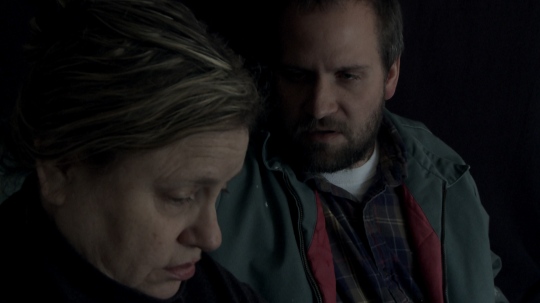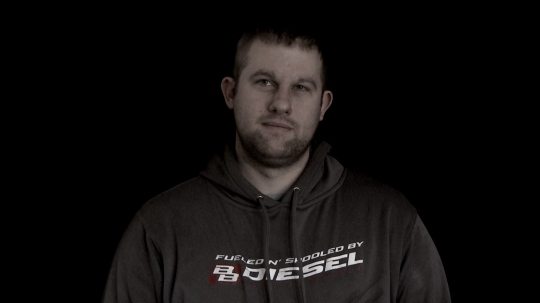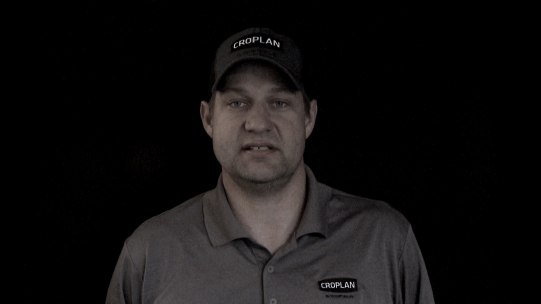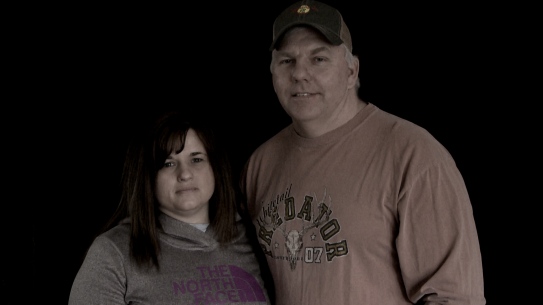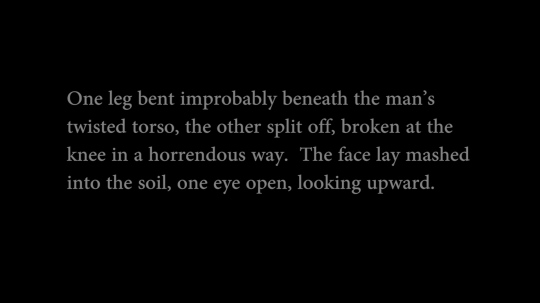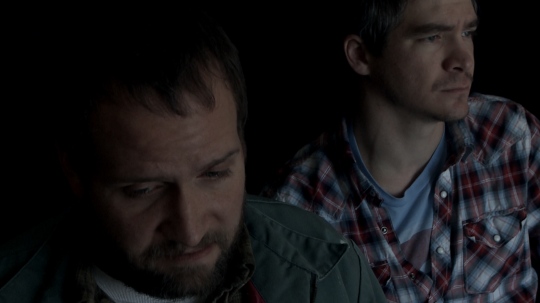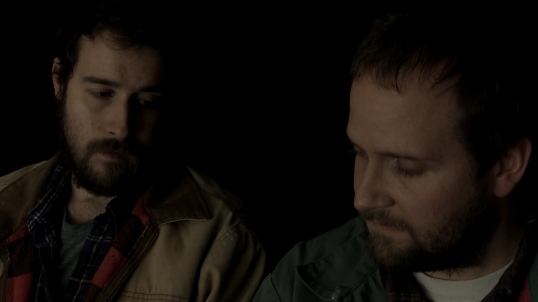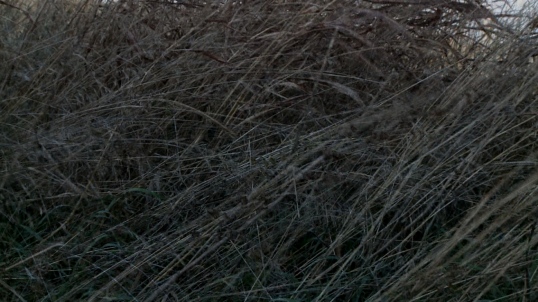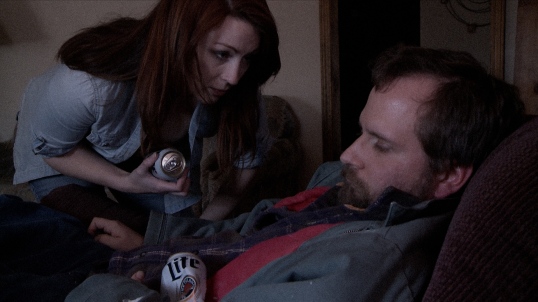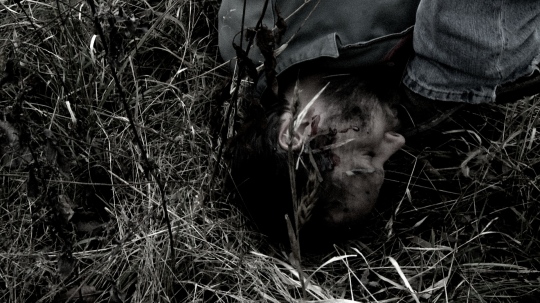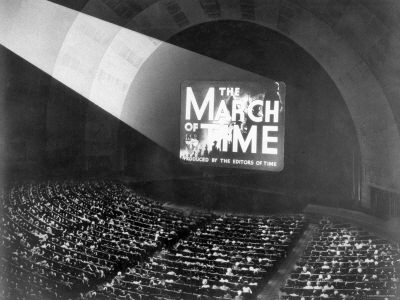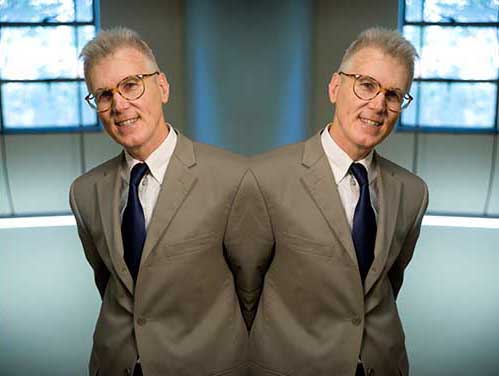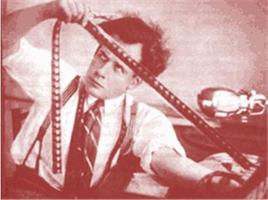Back a few weeks ago, the petition tipped over the 1000 mark we’d been aiming for, and my collaborator on this, Daniel Levine, printed it all up and delivered it to the heads of the Communications and the Film/Television Departments at Boston University. Below is his report on what happened.
My own view of this encounter is that, though I understand those at Boston University would dearly love to be rid of Mr Carney, they nevertheless are creatures of a somewhat rigid institution: a university. Hence their heads stay in the fox-holes, necks are not put out, and it is CYA as usual. It will clearly take either a smoking gun, or extraordinary external pressure to get the institution to move.
At present Fed Ex has made 6 attempts to deliver the Petition to Professor Carney directly, to multiple addresses where he allegedly resides. So far these attempts have failed. It seems rather clear Carney is in effect, “in hiding.” Perhaps he is sequestered to concentrate on some magnum opus, perhaps even on his favored filmmaker Mark Rappaport. Or perhaps he is in deepest denial. His absence leaves everything open to speculation, which I imagine is a very much intentional tactic on the Professor’s part. Perhaps he imagines this will all blow over and be forgotten in the wake of Hurricane Issac, the election, and the coming follies of our national consumer-Christmas and drunken New Year. And then, when he re-materializes for his spring class of teaching “American Independent Cinema” he’ll be welcomed by eager students, ready to sit before him and lap at his fount of wisdom.
Below is a listing of those who signed the petition thus far, and the comments left by some of them, compiled by Mark Rappaport.
Supporters’ Comments
.
About one-third of the signatories chose to make comments. They are printed below. Starting are those “most liked.”
.
su friedrich BROOKLYN, NY
No one but the filmmaker has the final right to their work, so there is no excuse for not returning work to the maker if they request it.
.
Kristin Thompson MADISON, WI
Obviously all this material should immediately be turned over to Rappaport. If Carney has no sense of decency, he might at least consider the damage his actions have and will cause to his standing in the academic community.
.
Ken Jacobs NYC, NY
To help protect the work of one of our best film-artists, and to see that it’s properly returned to him.
.
Martin Koerber BERLIN, GERMANY
Assuming Ray Carney was acting as an archivist who wanted to help Mark Rappaport when he moved out of the country, let me say as a fellow archivist that the right of the artist to withdraw, for whatever reason, and certainly for the reason of making the works
.
Monte Hellman LOS ANGELES, CA
I’m a filmmaker, and can personalize empathize with this horror.
.
ALL OF THE COMMENTS BELOW ARE EXACTLY AS THEY WERE WRITTEN, WITH NO TAMPERING OR TWEAKING, IN THE ORDER IN WHICH THEY WERE ENTERED—THE MOST RECENT ON TOP.
.
Achim Forst MAINZ, GERMANY
If even only the main facts of Jon Jost’s petition are true Mr. Carney is a shame for the international film science community. He should return the material immediately for his own sake – in order to save at least party his reputation.
.
roz payne RICHMOND, VT
justice for our films
.
David Bordwell MADISON, WI
I’ve waited to sign this to see if Carney emerged from his undisclosed location to surrender Mark Rappaport’s work, or to at least give his side of the dispute. But after several months Carney maintains secrecy and silence. So I too declare my support for Rappaport’s very reasonable request to recover his materials. And two lessons for filmmakers: Deal with real archives, not individuals. And get it all in writing! Real friends don’t mind preparing contracts and receipts.
.
Rodney Hill ELMONT, NY
As a film scholar myself, I am shocked at this situation. In a “previous life” I worked on the distribution of some of Mark’s films and consider him a friend as well as a very important filmmaker.
.
Jeffrey Economy SAUGERTIES, NY
As a filmmaker who has weathered similar storms, I know all too well the horror that comes from a trust betrayed. Do the honorable thing, Ray. You know in your heart what is right.
.
Rob Mattheu LOUISVILLE, KY
Ray Carney spent years touting Rappaport. The idea that he’d be unwilling to give his stuff back is appalling, especially for a man who claims to be a film scholar. Grow up, Ray.
.
Thomas Meade SAN FRANCISCO, CA
I never thought I’d find myself in the position of having to petition against Ray Carney. I was a full time student of his for three years and during that time he introduced me to artists that have been some of my greatest influences. Like many people here, we are familiar with Mark’s work through Carney’s lectures and writings. Mark even came to visit one of Carney’s classes to show what was then his current work, “From the Journals of Jean Seberg”. I don’t care to entertain what might be behind the reasons for his behavior, but Mark’s work should be returned to him immediately and without question.
.
Noak Esbjörnsson HELSINGBORG, SWEDEN
Mark Rappaport is one of the greatest film makers of all time. He has the right to his own work. What Carney has done is appaling, and quite shocking considering who he is. It’s a bizarre and unfair situation which I hope will be resolved in favor of Rappaport.
.
Alexander Schmidt GERMANY
Every filmmaker or in fact any artist whatsoever should have access to his material
.
Jamie Kirkpatrick NEW YORK, NY
As an alumnus of Boston University with a degree in Film Production, I find it appalling that this issue has even gone this far. Professor Carney has no rights whatsoever to an artist’s work and every delay in returning them only tarnishes the reputation of Professor Carney and Boston University.
.
Fred Truniger ZURICH, SWITZERLAND
isn’t it obvious?
.
Fred Murphy ASC NEW YORK, NY
Marks’s films are important ,should be seen often and he needs access to them.
.
Matteo Pollone REVIGLIASCO TORINESE, ITALY
Is a matter of justice and good sense.
.
Ruth Keusch JERUSALEM, ISRAEL
Mark is a great film maker and his material belongs to him alone. One really cannot allow anyone to take, destroy or make use of what he has done. Hopefully all of his property will go back to him.
.
tomas savrda KENT, CT
I have seen this film years ago on TV. I do not recall much, but it has left an impression on me and I would love to see it again – it is a crime and selfish act to prevent the public from viewing it for whatever personal reasons.
.
Darrell Wilson STATEN ISLAND, NY, NY
Mark Rappaport’s works are National Treasures and Carney is a thief who has committed a horrible crime.
.
Christopher Harrrs OVIEDO, FL
Simple decency.
.
Barbara Moss NY, NY
As both an alumni of Boston U School of Communications and Founder of Women’s Film Preservation Fund I am simply appalled to read of this travesty of justice. Shame on this Prof of Film.
.
Max Rouzier BALLSTON SPA, NY
This is a moral, ethical and disturbing act on many levels, professional and socially. I refuse to allow a colleague or institution like Boston University allow this to continue.
.
Sergio F. A. D. F., MEXICO
I love Ray Carney’s work, but I’d hate myself if I didn’t sign this. I sincerely believe it’s the right thing to do.
.
Adam Hirsch LOS ANGELES, CA
It’s critical that the international film community stands together to state that filmmakers have full rights to their work.
.
Paul KaayaLONDON, UNITED KINGDOM
I do not think stealing is ok.
.
Steve mcCrea FORT LAUDERDALE, FL
I make films, Seba (a filmmaker) passed this petition to me, I trust Seba and I believe the story as written in the petition needs some sort of action. I hope Dr. Carney returns the materials to Mark
.
Janet Cole BERKELEY, CA
I am appalled.
.
Jane Piliavin OXNARD, CA
This is a crime. Theft of intellectual property. The guy should lose his tenure, and then some. I am a Professor, and this offends the intellectual community as a whole.
.
Peter Aaron HUDSON, NY
I shot one of Marks films and want to see them returned to him.
.
jan kroeze NEW YORK, NY
I am a long time admirer of Mark Rappaport and his work, and theft of intellectual property is abhorrent – in particular to people in our industry.
.
Patricia Costello WEST NEW YORK, NJ
Too often artists “lose” or more accurately have their works of art stolen by people who think they can take advantage of people.
.
Susan Martin-Marquez HIGHLAND PARK, NJ
I can’t imagine any possible justification for this behavior from a fellow academic. We should be trusted stewards and ethically-engaged commentators–not thieves–of artistic legacies.
.
Anne Demijttenaere CALCATA (VT), ITALY
Personal concern
.
Nigel D’Sa MISSISSAUGA, CANADA
Outrageous audacity
.
Tiruvadi Jagadisan INDIA
AM AGAINST ALL KINDS OF FRAUDULENT DEALINGS
.
Jacki Ochs NEW YORK, NY
An outrageous act of theft perpetrated on a beloved indie artist.
.
Leslie Ross SEATTLE, WA
It is so very important to stand together in support of this great artist and to maintain our collective humanity. Thug, narcissists like Carney need to be shut down for all of our sakes.
Judith Redding PHILADELPHIA, PA
It is important that filmmakers be able to retain the rights — physical as well as creative — to their materials when no written contract has been made to turn over such rights. Professor Carney, by refusing to return these materials to Mr. Rappaport, is not only in violation of the law, he is in violation of the ethical standards that he, as professor at Boston University, is entrusted with upholding. His actions show that he cannot be considered “the leading scholarly authority on American narrative art film” when he shows no respect for the makers of those films. Professor Carney has not only destroyed his own reputation, but he has also tarnished that of the institution he works for.
.
Khavn De La Cruz QUEZON CITY, PHILIPPINES
The truth will set you free.
.
Lewis Beach REDDITCH, UNITED KINGDOM
I do not believe that any other party should hold the rights to creative material that excludes the authors input and possession. This is a blatant breech of human creative expression to will only go to marginalize film makers and artists. Disgraceful.
.
Sebastiano Tecchio ROME, ITALY
Sad and squalid scavenging… not tolerable!
.
Davide Sebastian ROME, ITALY
My source of inspiration!
.
paolo buggiani ROMA, ITALY
for justice
.
cinzia sarto ROMA, ITALY
Mark Rappaport’s films have been my source of inspiration and delight for years.
.
Michelle Citron CHICAGO, IL
I’m a filmmaker and fully support any filmmaker’s right to own and hold their own work.
.
Laura Boyes DURHAM, NC
It’s outrageous that an artist could be denied access to his own work.
.
Gerwin Tamsma ROTTERDAM, NETHERLANDS
While we can only hope Rappaport would be able to return to making films, the immediate need to return his films to him is obvious.
.
Dario Marchiori FRANCE
If that’s true, it seems to be just a “Greed” case. (“[Academic year] salaries for full-time faculty averaged $73,207. By rank, the average was $98,974 for professors, $69,911 for associate professors, $58,662 for assistant professors, $42,609 for instructors, and $48,289 for lecturers. Faculty in 4-year institutions earn higher salaries, on average, than do those in 2-year schools. In 2006–07, faculty salaries averaged $84,249 in private independent institutions, $71,362 in public institutions, and $66,118 in religiously affiliated private colleges and universities.”)
.
Amalie R. Rothschild NEW YORK, NY
As a fellow independent filmmaker I support Mark Rappaport’s rights to his own creative property. This situation is unfathomable.
.
Mark Eliot Rappaport SETAGAYA-KU, JAPAN
I’ve been a fan of Mr. Rappaport’s work for many years, not because we share the same first and last names, but because he is one of the most original filmmakers in the history of independent cinema. Shame on Ray Carney for holding Mr. Rappaport’s work to ransom.
.
Tom Whiteside DURHAM, NC
Fair is fair, unfair is unfair. Give him his films.
.
isabel Aboim-Inglez LISBON, Portugal
The right to intellectual property is a basic human right … the films reflect the thinking of Mark R and this cannot be stolen by others.
.
Grant McDonald AUSTRALIA
In honour of Ilona Staller who before the outset of the Gulf War offered to have sex with Iraqi leader Saddam Hussein in return for peace in the region, I am willing to have sex with Ray Carney if he will return Mark Rappaport’s material immediately. He should do so anyway.
.
Zelia Trueb EAST GREENWICH, RI
Professional Ethics.
.
Steve Anker VALENCIA, CA
The creative work of independent filmmakers is sacrosanct and should be respected at all costs and above all other matters. Period.
.
kristin hondros CHAPEL HILL, NC
Trust and community, to protect the work of MR, his legacy, and the future accessibility of his work.
Michael Cusdin AUSTRALIA The films belong to the filmmaker.Give.Them.Back.
.
Manas Bhattacharya INDIA
What Ray Carney is doing is outrageous and unpardonable. Mark Rappaport’s films belong to him. I sincerely hope he gets his work back without further ado. Cinephiles and scholars across the world deserve a chance to get to see Rappaport’s work.
.
Mary Dore BROOKLYN, NY Filmmaker,
this is theft.
.
Helen Bandis AUSTRALIA
Mr. Carney needs to put his ego to rest. Return Rappaport’s films!
.
Dimitry Heu-Mojaïsky FRANCE
Things like this really shouldn’t happen.
.
philippa bateman AUSTRALIA
Theft and lying under oath? A filmmaker who is denied access to what is his? It’s a disgrace
.
Jerry Lentz LORETTO, TN
Isn’t this clearly the right thing to do?
.
Ian Christie LONDON, UNITED KINGDOM
Bizarre, incomprehensible behavior. Why is Ray Carney doing this – and what does he hope to gain? For goodness sake let’s get Mark Rappaport’s work back into circulation, after too long an absence!
.
Neil McGlone IPSWICH, UNITED KINGDOM
An artist should not be denied access to his own work. He gave the items in good faith not as a permanent measure.
.
Ian Price HOUSTON, TX
An artist’s work is theirs
.
Helen Bandis AUSTRALIA
This is theft. And then he lied under oath? Why is he still employed?
.
Christopher Hayden SARATOGA SPRINGS, NY
I respect Mr. Carney’s voice and work, but it seems to me he’s overstepped his bounds here.
.
Noel Murray CONWAY, AR
Mark Rappaport helped change the way I think about movies, and deserves to keep doing so for others, with his original materials.
.
Lisa Zimble VENICE, CA
I love Mark — and his films — and it’s NOT fair.
.
Amin Chaou iWOODBRIDGE, VA
Give Rappaport what is his!
.
Brian Robertson RALEIGH, NC
A no-brainer.
.
Rodney Welch ELGIN, SC
The situation as it stands is an absolute no-win outrage. In denying Mark Rappaport access to his work, Raymond Carney is violating a man’s sincere trust and no doubt ruining his high esteem in the critical and academic community. Mark Rappaprt’s work should be returned to him now.
.
Olga Smakova TORONTO, CANADA
Mark Rappoport is my colleague. I want to help him.
.
ANTONIO WEINRICHTER SPAIN
The relevance of Rappaport’s filmworks is out of the question. Besides, this is a scandal, a steal.
.
Niki Logis ALVA, OK
Ray Carney: why would you disgrace your entire career in order to prevent Mark Rappaport from regaining his film work? Neither greed nor petulant madness answers this question. Perhaps you have been seized by the desire to know Sin firsthand. A Nietzschean question.
.
Berenice Reynaud VALENCIA, CA
Trust. Mark Rappaport trusted his work to somebody he considered a friend, and his trust was betrayed. Art. Mark Rappaport is one of the most important/talented independent filmmakers making work that question the film medium as such, and his work should be made accessible to everybody who wants to see it. History. Let’s not allow a part of the history of cinema, to be eradicated. Justice.
.
Cornelia Kiss LOS ANGELES, CA
Because apparently Carney is a thief and I’m an independent filmmaker and know what it takes to make a film.
.
Eva Perusic PRAGUE, CZECH REPUBLIC
Mark is a fabulous documentarist, trusty as well and his materials need to be returned to his ASAP!!! SHAME!!!!
.
Justin Talaga CHICAGO, IL
As a young filmmaker, I stand behind the rights of all other filmmakers, especially in nightmare scenarios, like this one.
.
john mount READING, UNITED KINGDOM
Mark Rappaport is an extremely fine film maker and his films deserve to be seen by a much wider audience, they are also the product of his own creative efforts and should belong to him
.
Tanner Tafelski NEW YORK, NY
Rappaport is entitled to the art he created.
.
Matthew Clayfield AUSTRALIA
Ray Carney thinks he owns certain filmmakers. He does not.
.
David Leitner NEW YORK, NY
Droit moral, moral rights of artists, are weak enough already in this country. But this is theft, plain and simple
.
José Alves Pereira LISBOA, Portugal
the owner is the creator not the depositary.
.
Vicci Ho AUSTRALIA
Mr. Rappaport’s property should be returned to its rightful owner.
.
José Bogalheiro LISBOA, PORTUGAL
An archive should not be a tomb. Give life to the creative work of MR.
.
Christine Le Goff FRANCE
To lose his film originals is a filmmaker’s worse nightmare, the erasal of an exceptional body of work. Mark does not deserve what has happened. Return his films.
.
ANNE LE BECHENNEC FRANCE
Le travail d’un artiste doit être protégé de toute personne venale!
.
Jan Philipe Carpio MAKATI, PHILIPPINES
I consider Ray Carney’s one of my mentors in filmmaking, art, and life from a distance as I have never met him personally but have been a long time admirer of his work for championing American independent filmmakers like John Cassavetes, Mark Rappaport and Jon Jost. It was through his work that I came to learn of these artistic voices outside of studio approved blockbusters. His work has been extremely formative in my work as an artist and filmmaker. His current actions regarding Mr. Rappaport’s work are appalling and baffling. I will always admire his work but I cannot and will not condone and support his actions towards Mr. Rappaport. Professor Carney, please, you are destroying everything you have stood for by doing this. Please return all of Mr. Rappaport’s work immediately and issue a personal and public apology. I make this personal appeal to you as an honorary student of yours who still hopes you will do the right thing.
.
Kevin Thomas SANTA MONICA, CA
Because an artist’s rights are at stake–and because Jon Jost has gone through a not dissimilar experience himself.
.
Richard Koszarski TEANECK, NJ
Unless Prof Carney can produce a lot of serious paperwork, he needs to return this material to its creator without further delay.
.
Christopher J. Adams WHITMAN, MA
The theft of an individual’s art should not be defended or excused by anyone.
.
Patricia Kelley CHICO, CA
I too have been a victim of theft of my art, more than once. It is devastating and negates your worth as an artist to yourself and to others.
.
Richard T. Jameson SEATTLE, WA
Someone really should explain to Carney that he doesn’t own filmmakers.
.
Wendy Lidell NEW YORK, NY
Archivists and distributors exist to serve and support the work of the artists we love and respect. Carney’s actions do neither and thus attest to the fact that he doesn’t.
.
Aaron Gerow HAMDEN, CT
There damage here is not only to the artist, but to the notion of archiving. That hurts all of cinema.
.
Elizabeth Verry PARIS, FINLAND
independent artists are not alone but a large community all around the world ready to support each other
.
Bernard Eisenschitz PARIS, FRANCE
An artist’s right to get his own life’s work back must be recognized, even though he misplaced his trust in a false friend.
.
Mark Daniels FRANCE
Mark is the owner of the work he created. Not returning it is theft.
.
Ania Trzebiatowska NEW YORK, NY
We have to look after the most valuable things we are lucky enough to be around. And Mark Rappaport’s films are exactly that..
.
Rémi Guittet MONTREUIL, FRANCE
Free films !
.
Janine Prins AMSTERDSAM, NETHERLANDS
Cultural heritage should be safeguarded as well as authorial ownership
.
Ingo Petzke AUSTRALIA
Such behavior is absolutely disqualifying for any academic anywhere in the civilized world
.
debarshi ghosh CALCUTTA, INDIA
it is about individual rights. Ray Carney did wrong
.
Nikhila H HYDERABAD, INDIA
It’s a question of ethics in the academia
.
Vincent NORDON FRANCE
I have the same problems
.
Candace Reckinger LOS ANGELES, CA
Return these works to the artist who made them! This is his life work, his legacy, and he should benefit from income that may be generated thru new distribution routes.
.
Jason Simon STATEN ISLAND, NY
To Stop a Thief.
.
Shruti Ghosh AUSTRALIA
I am pursuing my PhD in film studies-performance studies. This incident is alarming to me in many ways. As a student and lover of films I am induced to join the cause.
.
lara hannah BROOKLYN, NY
stop the boycott of MR’s work
.
Greta Schiller NY, NY
Filmmakers should own their work.
.
Sarah Schulman NY, NY
Friend of Mark’s and filmmakers everywhere.
.
Richard Wilson CHICAGO, IL
Why wouldn’t it be?
.
Vorakorn Ruetaivanichkul BANGKOK, THAILAND
I’m filmmaker also and I want to reserve the right in the work of us.
.
Tony williams CARBONDALE, IL
Rappaport is not only a great film maker but also a distinguished critic. He does not deserve to be treated like this. A complaint should also be made to Carney’s Dean.
.
Robert Furze DUBLIN, IRELAND
Enough is enough. Morality in academia matters, as it does in all aspects of life
.
Della Kweskin DES MOINES, IA
Mark is a fantastic person and deserves to have his films back!
.
anne marie poucet FRANCE
parcequ’il est toujours insupportable de voir un artiste spolié de son travail. La même mésaventure est arrivée en France à certain nombre de cinéastes (le dernier en date: Pierre Etaix) et que seule la mobilisation des gens de cinéma peut faire bouger les choses
.
Vincent Novak SHELTER I., NY
to right a wrong
.
Celluloid Liberation Front HELL, UNITED KINGDOM
It is a more sensible alternative to the kicking of Ray Carney’s ass…
.
Ben Coccio LOS ANGELES, CA
Jay Carney sent me all of his notes, his writings, his correspondences; really, his entire life’s work. He just gave them to me. Right there on the internet. So when I publish the authorized, exhaustively researched, and definitive story of his life in conjunction with a retrospective show of all his most important lectures, lovingly reenacted by some of today’s most respected and daring performance artists, I’m sure he will be extremely proud. But I won’t give him one thin, red dime of what I make on that shit. In all honesty, I think Mr. Carney is simply afraid. In the last 7 years, new options of distribution have developed which allow true independent filmmakers to distribute their work easily to a larger audience. This is a huge opportunity for a filmmaker like Mark Rappaport. It also must be horribly threatening to a self-proclaimed cultural gate-keeper such as Mr. Carney.
.
jean-pierre Garcia AMIENS, FRANCE Shame on professor Carney ! Jon Jost is right when he says : ” This is especially shocking in the so-called “independent” film world in which people struggle for years to make films, with very little if any recompense. ”
.
Robert McChesney GALWAY, NY
It is a trust issue that has gone sour motivated by greed.
.
Javier PACKER COMYN BRUSSELS, BELGIUM
The right of an artist on his or her work should stand above everything.
.
yara ebrahim CAIRO, EGYPT
Why is this important? Because Mark Rappaport is as important as a filmmaker could be, and what he made is what makes him important, and what he made shall be all in his hands.
.
Jennifer Testa PLEASANTVILLE, NY
This is an appalling situation
.
Peter Barton NEW YORK, NY
Preserving my work as a filmmaker is important to me. Don’t want to see another filmmaker lose his legacy.
.
C. Mason Wells BROOKLYN, NY
I didn’t think it was possible, but Ray Carney is managing to make Mark Rappaport’s brilliant movies even tougher to see. Return the work.
.
Carol Klenfner NEW YORK, NY
the materials belong to Mark
.
Makbul Mubarak SEOUL, KOREA, REPUBLIC OF
Mark Rappaport is as important as a film maker could be. What he made is what makes him that important, what he made shall be return to his hands.
.
Matías Piñeiro NEW YORK, NY
because independent directors must have the rights to their work and no confinement of it should be allowed.
.
Chuck Workman NEW YORK, NY 10022, NY
In my experience, archives often take the responsibility of preservation a little too literally and I’ve found fight the original donors of the material when they ask for access, as if they’re now the keepers of that particular flame. To ask for money on top of this adds insult to injury. Prof Carney has actually been known to be reasonable and smart and should come to his senses on this outrageous act. It’s precisely the work of filmmakers like Mark Rappaport who have to be served not restricted.
.
Prof. John Smith LONDON, UNITED KINGDOM
As an artist and filmmaker this situation sounds like my worst nightmare.
.
James Benning VAL VERDE, CA
Justice
.
Joe DreierLONDON, UNITED KINGDOM
filmmakers have the right to their films unless they have sold their copyright
.
Edie Bresler SOMERVILLE, MA
Mark Rappaport is a brilliant filmmaker who made the mistake of trusting Ray Carney. Carney needs to return all films/videos and any materials immediately to their rightful owner and stop stealing another artist’s work.
.
Mischa Deimel AUSTRALIA
If Ray Carney had any decency he would return Mark Rappaport’s materials to him so that his work would be made available for streaming.
.
Aaron Cutler SãO PAULO, BRAZIL
Because a filmmaker’s work always is.
.
Madhuban Mitra INDIA
There can be no earthly reason for any scholar to deny an artist access to his own work, as also stop the work from reaching its potential viewing public.
.
Rebecca Lieb NEW YORK, NY
Because Mark is a friend, and because theft is unconscionable under any circumstances, but even more intolerable when an academic commits the crime.
.
Lana Lin NEW YORK, NY
Protect artists’ intellectual property
.
Paula Massood NEW YORK, NY
These materials should be returned to their maker rather than being hoarded away in someone’s personal collection.
.
Thomas Elsaesser NEW YORK, NY
It should be self-evident that Anything given in trust must be returned to the rightful owner if so requested.
.
Paul Krimmer VIENNA, AUSTRIA
to see but to play blind is a social affront. what does the word cooperation mean to these (educated?) people? [rhetorical question]
.
Georg Alexander BERLIN, GERMANY
Mark is a highly talented filmmaker who should by all means have control over his own work , including physical possession.
.
Fabrice Ziolkowski FRANCE
As a filmmaker, I can only support other artists who are trying to keep some modicum of control over their work.
.
ricardo iscar SPAIN
Because I am a filmaker myself and know how terrible is to experience this.
sean nam CARLISLE, PA
If it’s yours, then it’s yours.
.
Maren Hobein LONDON, UNITED KINGDOM
As an exhibitor I think film should be widely available and shared, but most of all I thnk that a filmmaker has the rights to his films.
.
Werner Schweizer ZüRICH, SWITZERLAND
Independent filmmaking needs solidarity!
.
Jean-Michel FRODON FRANCE
Even if Rappaport was not the great filmmaker he is, he would deserve to get back his own work. In his case, this situation is specially shocking.
.
Dennis Grunes PORTLAND, OR
I am a poet, and creative property rights are part of one’s lifeblood.
.
Cerise Howard PRESTON, AUSTRALIA
Saddened to see a distinguished member of academia so abusing the trust, and hampering the public exposure and right to a livelihood, of a distinguished filmmaker. Mark Rappaport’s wishes are wholly reasonable and should surely be respected in this matter.
.
Daniel Eisenberg CHICAGO, IL
Because it’s the right thing to do.
.
Rahee Punyashloka INDIA
Because Rappaport as well as other filmmakers deserve their basic rights; their right to screen, and possess the films they have made as their life’s sole entity.
.
Matthew Ludvino LOWELL, MA
I’m hoping this turns out to be an Andy Kauffman style prank aiming to generate more interest in Mark’s work as opposed to a talented art critic completely losing his mind. Time to let go, Ray.
.
Arden Castillo HOUSTON, TX
To have property be taken away from an important filmmaker (or anybody for that matter), let alone be backstabbed by someone whom you entrusted those belongings to, is just not right.
.
Yves Sauriol VAUDREUIL-DORIO, CANADA
Return that film Ray!!!
.
Zachary Padovani POUGHKEEPSIE, NY
Too often in our world is art stripped from the artist for the benefit of others.
.
Heiner Ludwig Ross D 20253 HAMBURG, GERMANY
I do show films since 1957 and helped to build world famous ARSENAL cinema in Berlin and METROPOLIS cinema Hamburg. The fame of these institutions comes from the work of filmmakers who created the films. Without these tremendous work film history and film as art would not exist. Who shows films is and has to be the servant of the filmmakers. Otherwise he or she will be a thief. Prof. Carney’s fame is based on the work of Mark Rappaport and other artists. He should show his respect for film art and film history by returning the films to Mark Rappaport without any demands from his side.
.
Rea Tajiri PHILADELPHIA, PA
Seizing an artist’s lifes work in this manner is theft and is appalling. Mark is an important filmmaker and his work needs to be seen in this current cultural climate.
.
Martin Loiperdinger TRIER, GERMANY
public access to the work of a renowned artist
.
Manuel DeLanda MANHATTAN, NY
I am a filmmaker and can only imagine what Mark is going through.
.
Laurent Jullier FRANCE
A reliable friend told me this was unfair. Occasions to be a friend are shortening these days.
.
Graham Lockey OXFORD, UNITED KINGDOM
The inconsistency of Carney’s accounts of which of Rappaport’s video materials he was still in possession of and his ongoing silence in the face of the ever surmounting legal and professional consequences of his actions sadly appear to indicate a man who is no longer operating in accordance with the moral and ethical imperatives which ought to govern the actions of any person into whose custody a body of work is entrusted for archival purposes.
.
Wilfried Reichart D 51065 KöLN, GERMANY
the material belongs to the author. Carneys behavior is unbelievable.
.
Kelsey Brain NORTHRIDGE, CA
We need to protect the work of Mark Rappaport.
.
Christine Lucy Latimer TORONTO, CANADA
It is nothing short of baffling that a trusted educator would store a filmmaker’s work and then later ask for thousands of dollars for its safe return. I’m unable to conceive of Prof. Carney’s ultimate goal here. I wonder how he would feel if his artwork was being held hostage in this manner?
.
Werner Dütsch COLOGNE, GERMANY
In the words of Carney: a genuine national treasure,” “the greatest living American filmmaker,” and “one of the world’s great artists.”
.
Jack Hirschfeld HAVRE DE GRACE, MD
Art is not peripheral.
.
lynn phillips NEW YORK, NY
I’ve known Mark since 1980 and he has never been anything but scrupulously honest. If he says it was a loan, not a gift, I believe him.
.
Tim HalloranLOS ANGELES, CA
It is the right thing to do.
.
Edward Dimendberg IRVINE, CA
Carney’s behavior is shameful. Rappaport is a filmmaker of singular talent. Anyone who cares about film should support him.
.
Mitchell Wu BROOKLYN, NY
Those materials rightfully belong to Rappaport, and Carney’s actions against Rappaport is a complete betrayal of his ideals as a film scholar.
.
Walter UngererCAMDEN
I believe any harmful action and injustice to anyone, when exposed, requires a public reaction in order to expose its destructiveness and hopefully rectify the offense.
.
Silvianna Goldsmith NEW YORK, NY
All artists must support that their work will not be stolen from them!
.
Bobby Abate BROOKLYN, NY
I have faith and confidence Mr. Carney will return these works to their rightful owner: Mr. Rappaport.
.
Peter Rose PHILADELPHIA, PA
It’s a simple question of artist rights, control of materials, and ethics.
.
Emily Breer GARRISON, NY
Because I love Mark Rappaport! and it’s obviously odious to keep his films from him
.
Jack Walsh SAN FRANCISCO, CA
Artists should control their work, period!
.
Gertjan Zuilhof AMSTERDAM, NETHERLANDS
I have no insight in the juridical details of this dispute. I also do not feel like studying the case. There are lawyers for that. I suggest give the films to the filmmaker and then call a lawyer. Not the other way around.
.
Phil Solomon BOULDER, CO
Obvious reason – I’m a filmmaker.
.
Michael Pigott LEAMINGTON SPA, UNITED KINGDOM
It is saddening and disillusioning to see someone in a position to champion the work of an important artist actually get in the way of it. How much time and money has Rappaport lost to this mess?
.
Rob Levi NEW YORK, NY
Do the right thing. You’ve built a life through other filmmaker’s work. Give something back to the community – especially since it’s not yours to keep
.
Christoph Hochhusler BERLIN, GERMANY
Whatever the (mis-) understanding was in the first place, you can’t seperate an artist from his work.
.
B Ruby Rich SAN FRANCISCO, CA
This is a crazy situation: of course M.R. should have his work back. What’s happened to Ray? The situation should be resolved immediately.
.
Kian Bergstrom CHICAGO, IL
Carney’s actions violate any sense of decency and, more importantly, are an affront to the continuing work of a major contemporary artist. Rappaport has an overwhelming moral right to his own work, and the interests of all who claim to be invested in cinema as an art form are hindered by Carney’s mercenary and mean-spirited behavior, for they deprive a working filmmaker of a significant portion of his own medium. Give him back his work!
.
miguel angel martinez SPAIN
Well, I don´t want that something like this would arrive to me.
.
Jonathan Walley COLUMBUS, OH
This is an embarrassment to cinema scholarship, and threatens the special artist-scholar relationship that is unique to experimental film, and which benefits us all. Carney should return the work, and in doing so perhaps undo some of the damage he has done.
.
Bernd Luetzeler BERLIN, GERMANY
it’s just obviously very important
Alain LeTourneau PORTLAND, OR
Mark’s work represents some of the best of American independent cinema and should not be held captive by an individual who clearly has no right to these materials.
.
Salah Hassanpour TORONTO, CANADA
And end to all sociopathic self-promoters in academia.
.
Pip Chodorov PARIS, FRANCE
Helping filmmakers is my business
.
Elsie Walker SALISBURY, MD
For the protection of the individual artist’s rights.
.
Sarah Bunting BROOKLYN, NY
It’s difficult enough to make one’s way as an independent artist without having to worry about losing your work entirely.
Michael Higgins DUBLIN, IRELAND
I’m a filmmaker and feel his pain.
.
John Keefer PHOENIXVILLE, PA
Film does not belong to one man, it belongs to all of us, it’s life lead by the filmmakers.
.
Francesca Dal Lago FRANCE
It is simply absurd and unacceptable that several years works of such an important director could be outright stolen and , effectively, become unaccessable to the whole film community. RETURN MARK RAPPAPORT’S FILMS!!!!
.
Clark Foldberg RICHMOND, VA
Ray Carney is a published and publishing writer/theorist whose public actions are followed by so many students and scholars of film. First it’s absurd that this man should act so cowardly when taken to court. Second, if what’s being said is true (if Carney hasn’t denied that it was an offer), it’s terrible to take part with ‘the greatest artmaker ever’ in an interaction that has clear terms – one man is given a place to put his art, the other gains the honorific of protector, with the benefits of respect and access – and fully screw the guy over. Carney’s reputation will forever bear his sneering attitude towards artists with dreams, and towards the potential film community that shares motion pictures as primitive 19th century man shared words. More importantly though, the situation is incredibly simple, and the lack of resolution is just sad. Rappaport has lost the fruits of his lifetime of filmmaking, and Carney (has lost his marbles) is with every passing moment turning himself further and further from reconciliation with the main forum for ideas and progress he dealt in. I almost feel bad for being the next, 564th cog compelled to say something, because for Carney it shouldn’t have to go like this. Just give him back the movies, dude. PS Jon Jost is my savior I will sign anything he writes for me to sign. Anything.
.
Michael Witt UNIVERSITY OF ROEHAMPTON, LONDON, UNITED KINGDOM
All the material should be returned immediately to Mark Rappaport.
.
Joshua Ostrander GREENLAWN, NY
What Ray Carney did just seems wrong no matter who he did it too.
.
Erwin Houtenbrink ROTTERDAM, NETHERLANDS
Because I like justice served
.
will rutledge TORONTO, CANADA
give him his fucking films back.
.
Marc Weiss NEW YORK, NY
Mark’s materials belong to him, not to anyone else. If he wants them back, he should get them. End of story.
.
Angelo Simeone AUSTIN, TX
It’s unclear to me why someone who claims to publicly support an artist would give away or destroy material given to him by that artist for safekeeping. It’s also unclear to me why that person entrusted to the care of that material would hold it hostage for a fee. It’s obvious that the person entrusted to the care of the material hopes the gain something financially for it. In this day and age, an artist should always maintain control of his own work, and those who use that work for their own personal interests are clearly in it for something other than love of art.
.
Heinz Emigholz BERLIN, GERMANY
I do not like academic vampires.
.
Tom Kalin NEW YORK, NY
Mark is the filmmaker and ultimate owner of the work. All the materials held by Carney should be returned to him. I have to say I’m shocked by Carney’s behavior in the matter.
.
Javier Quintero BOGOTA, COLOMBIA
1. An artist has the legitimate and final right to keep the work s/he created. 2. Mr. Rappaport has the right to receive an answer from Mr. Carney. 3. Mr. Carney should show up and offer an explanation on what is exactly going on.
.
Adam Soule CHICAGO, IL
I am in the industry.
.
James Fazzaro SOMERVILLE, NJ
That’s a raw deal there, I’d never want to see a filmmaker lose their materials over a bogus “agreement” such as this.
.
Julie Rigg AUSTRALIA
It’s an absolute question of ethics and moral rights
.
Farshid Mofidi COLOGNE, GERMANY
I have yet seen only one of Mr. Rappaport’s films and found it wonderful. I am no filmmaker or critic, just a student with a great interest in cinema and a distaste for self-righteous academics in general. I am also desperate to use the internet for the benefit of mankind. So I’ll sign this petition and wish for the best outcome for Mr. Rappaport.
.
Brandon Colvin MADISON, WI
These films obviously must be returned to Rappaport, not only for digital distribution, but for proper archival storage; this is a crime against culture.
.
Bruce McPherson KINGSTON, NY
Professor Carney seems to have forgotten about karmic boomerang.
.
Giles Sherwood NEW YORK, NY
Common sense. Simple decency. Please do the right thing.
.
CHRISTINE REYNOLDS LA, CA
.INTELLECTUAL PROPERTY
.
David Bratton LOS ANGELES, CA
A filmmaker’s works belong to the filmmaker, not an academic
.
barry gerson PRESTON HOLLOW, NY
This appears to be a case of unethical and unlawful behavior on the part of Mr. Carney.
.
Derek Long MADISON, WI
This is an affront to artists’ rights and the scholarly community.
.
Keith Phipps CHICAGO, IL
A no-brainer. Seriously.
.
Jesse Perry NASHVILLE, TN
Ray Carney needs to do the right thing.
.
harles Blakemore AMSTERDAM, NETHERLANDS
Artists own their work unless they explicitly sell their rights. This is a criminal theft on the part of Carney
.
Zachary Williams BURNABY, CANADA
For too long Ray Carney has been exploiting individuals such as Mark Rappaport based on his alleged ‘status’ within American academia. Actions such as these are seriously detrimental to not only Rappaport but to the entire cinephilic community. Rappaport’s livelihood is at stake here, as is the public’s access to important cultural and artistic documents.
.
Daniel McKleinfeld BROOKLYN, NY
Mark Rappaport is one of the great independent filmmakers, and this is a terrible crime against film preservation.
.
Christina Lewis HONOLULU, HI
Art, man.
.
Adam Zanzie WILDWOOD, MO
I immensely disapprove of Ray Carney’s interference in the personal affairs of filmmmaking artists, and it is time he answered for them.
.
Matthew Seitz BROOKLYN, NY
The films belong to Mark.
.
Michael Hannigan CORK, IRELAND
The clear injustice. involved.
.
Rosanne Walsh FRANKLIN, MA
An artist’s work is his own.
.
Matthew Pinkerton LITTLETON, CO
I am a filmmaker and find this situation completely unacceptable.
.
Karel Doing ROTTERDAM, NETHERLANDS
I am an artist/filmmaker and regularly have to defend my copyright.
.
Jean-Jacques Birgé FRANCE
Authors have so often difficulties to get their work shown…
.
Geoffrey O’Brien BROOKLYN, NY
To defend the rights of artists.
.
greg anthon ENGLEWOOD, NJ
Carney- return the films!
.
Jennifer Kotter NEW YORK, NY
This extreme misunderstanding will be remedied only when all materials in question are returned to the artist in good condition. A treasure and unique artist, Mark Rappaport must have his life’s work returned to him immediately. Withholding these archives from their author is criminal.
.
Nick Wrigley HORWICH, BOLTON, UNITED KINGDOM
So sad and unnecessary. A disgusting story.
.
Stephen Kutos PASS CHRISTIAN, MS
As a film maker, I cannot imagine the horror of someone stealing my archives and depriving me of my ability to distribute my work.
.
will aitken MONTREAL, CANADA
Carney clearly got Proudhon wrong : theft is not property
.
Montse Pellicer SPAIN
Some people think they can do whatever they want, with no respect for others
.
Adam Barth NORTH KINGSTOWN, RI
That Mark Rappaport deserves the immediate return of his materials remains one of the few clear and discernible facts surrounding this debacle.
.
Louis Salvas WARWICK, RI
Perhaps his claim of unfair treatment regarding the Cassavetes films which he found is warranted on a certain level.
.
Donald Liebenson HIGHLAND PARK, IL
the salvation of an artist’s life’s work
.
Dane Benko AL AIN, ABU DHABI, UNITED ARAB EMIRATES
Art before ego.
.
Randall Danson BROOKLYN, NY
I value Mark Rappaport as an artist but more importantly for being an inspiring example to all artists who struggle and do without in order to dedicate themselves to creating work that is outside the norm and true to their own hearts and souls. We are lost culturally without such people. And theft is theft.
.
Luke Holmaas FARGO, ND
Because I believe in the freedom of information, and in providing access to works of art (especially films), and I am appalled by the dictatorial behavior of this academic as he violates every principle he supposedly stands for (or should)
.
Mark Longden CHESTERFIELD, UNITED KINGDOM
Mark deserves his stuff back, plain and simple.
.
Al Nigrin NEW BRUNSWICK, NJ
Hey Carney! Give Mark Rappaport his masters and materials back!
.
Sandy Flitterman-Lewis HOBOKEN, NJ
Mark Rappaport is one of our most significant contemporary filmmakers and his work should be available to all. First step: Liberate the materials. Second step: a Traveling Retrospective. Third step: Establish worldwide acknowledgement of MR’s art and importance to film.
.
Logan ArneyI NDIANAPOLIS, IN
Because Rappaport’s film’s are important to my work.
.
Jason Mittell E MIDDLEBURY, VT
Ray Carney is clearly an egomaniac (see his site at http://people.bu.edu/rcarney/aboutrc/letters.shtml ) and needs public shaming over his actions.
.
Erik Hammen SEATTLE, WA
Render unto artists what is artists’
.
Sara Driver NEW YORK, NY
I have always admired the work of Mark Rapport and hope the rest of the world gets to see it. His work should be returned to his hands. Why Ray Carney has any right to hold onto this great filmmaker’s life work is not understandable at all and is a terrible injustice.
.
Susan White TUCSON, AZ
This theft of Mark Rappaport’s films and other artistic work must be punished!
.
Thomas Elrod CARY, NC
Mark Rappaport deserves control and ownership over his own films. Carney, apart from acting ridiculous, is also acting unethically and immorally.
.
james medeiros LINCOLN, AR
if believe in free library for all not few and jesus, it his personal shit innit.
.
Tom Scarlett ROCKVILLE, MD
Justice for an innovative artist.
.
Stuart Liebman NEW YORK, NY
Withholding an artist’s materials for ransom? C’mon, what is Carney thinking?
.
Ivo Tomas PHILADELPHIA, PA
It’s theft, as far as I am concerned
.
Laura HerrmannASHEVILLE, NC
These films are a national treasure and everyone should be able to continue enjoying them. I believe in preserving films and Rappaport deserves to have them back.
.
Girish Shambu BUFFALO, NY
Mr. Carney: Your reputation as a ‘friend’ is nearly destroyed. Save your reputation as a scholar and critic by awakening to your crime and returning Mark’s films immediately.
.
Paul Wagner CHARLOTTESVILLE, VA
I question why Boston University has not spoken out on this matter. Surely they don’t support Prof. Carney’s unethical and illegal action.
.
Dominic Leppla MONTREAL, CANADA
scholar and cinephile
.
Shane Ford HOUSTON, TX
We, as viewers and participants, are already faced with plenty of obstacles from the mainstream to make or view real art in film. This is most disturbing because this essential theft comes not from a studio or a “usual suspect” but from someone who was a champion of these works, someone from the inside. It’s time to give the work back to the artist.
.
Caldecot Chubb LOS ANGELES, CA
Integrity and justice.
.
Leonardo Paulillo ROMA, ITALY
It should be not considered a gift something that could have a value of 27.000$! Everybody knows that real “gift” has no value!
.
Graham Swindoll BROOKLYN, NY
Rappaport deserves his work back, and what is being done to him is a horrifying violation.
.
Scott Smith MALIBU, CA
huge supporter of independent and experimental film
.
Toni D’Angela MILANO, ITALY
That creation belongs to the his creator: Mark Rappaport. And he needs his stuff. He has the right to ask and to get his work. No way.
.
Eduardo Martinez PHARR, TX
I became an admirer of Mark’s when I first saw “Rock Hudson’s Home Movies”. Hearing about this situation has saddened me. This great artist should get his work back.
.
John Pastuch NONE OF YOUR BUSINESS, NJ
Mark Rappaport is an independent artist. Those works are his entire life. Furthermore, Carney is directly preventing those works from reaching a wider audience.
.
John Finlay FRANCE
The artist’s work belongs to the artist. Period.
.
Jim Beaver STUDIO CITY, CA
Without documentation of a transfer of ownership, no one should be able to outrank the creator of a work of art in the matter of ownership. Let Professor Carney prove his own ownership or revert all of the items to the creator.
.
Chris Fujiwara EDINBURGH, UNITED KINGDOM
Artists’ moral right to their works must be protected against the greed and vanity of the powerful.
.
Nicholas Middleton HAMAMATSU, JAPAN
If he wants them back, there shouldn’t be any obstacles put in place. That said, I think those close to him should stage a reverse-heist. Let it be known that I endorse this stunt should it be pulled off.
.
Thomas Groh BERLIN, GERMANY
As a film critic, I think it’s scandalous to cut off an artist from his work
.
Catherine Grant BATTLE, UNITED KINGDOM
Because I’m a film studies academic and I don’t think film studies academics, or anyone else working with artists, should behave like this.
.
VIGO luce Vigo PARIS, FRANCE
It belongs to M. Rappaport and represents the work of all a life.
.
Alix de Montaigu75002, FRANCE
An artist owns what he creates
.
Nicole Brenez PARIS, FRANCE
And as a bonus, please give back also the first version of “Shadows” to Gena Rowlands.
.
Stacia Kissick Jones MANHATTAN, KS
It is clear this material was not given as a gift to Mr. Carney. In light of this, Mr. Carney should return these items to Mr. Rappaport as soon as possible.
Michael McWay LEMOORE, CA I love Carney, but I don’t understand his behavior here at all. Please return Mark’s films.
.
Sean Healy MAITLAND, FL
I believe that artist has the right to possess his work and share it with everyone. Carney by hoarding Rappaport’s material (and thus preventing the ownership/restoration/distribution of Rappaport’s life work) is infringing on this basic right of one of the great film artists, and must be stopped from continuing to do so.
.
Juhani Klemi TURKU, FINLAND
No need to explain. He is a thief.
.
Christopher Sieving ATHENS, GA
Humanity
.
herb shellenberger PHILADELPHIA, PA
Please return Mr. Rappaport’s work.
.
Godfrey Cheshire NEW YORK, NC
principle
.
Greg Giles OAKLAND, CA
Something similar to this happened to me once with a former colleague. Even if Carney has a remote chance in court, human decency and the urging of more compassionate friends, film lovers, artists, and intellectuals should move the man to return Rappaport’s work without the sad recourse of legal action.
.
Tom GunningCHICAGO I, IL
this is both an ethical and aesthetic issue: return of property and support of major artist having access to his work
.
Liam Williams VICTORIA, CANADA
There is no justification for Ray to not return the works of Mark!
.
Sherman Ong SINGAPORE, SINGAPORE
“What the teacher is, is more important than what he teaches.”― Karl A. Menninger
.
Matt Langdon LOS ANGELES, CA
It’s time for Ray Carney to do the right thing. If you respect the films you need to also respect the filmmaker.
.
Thomas Hutson WILDWOOD, MO
Prof. Carney should be held accountable for his bad behavior and prosecuted for his crimes.
.
Jesse Richards GRANBY, MA
This kind of leeching off of a filmmaker cannot go ignored. Return the films.
.
Eli Elliott ST. PETERSBURG, FL
Absurdist Video Art supports this action and denounces artistic inside job egotistical behaviors such as displayed by Ray Carney
.
Jonathan Shapiro LOS ANGELES, CA
Carney’s behavior is inexcusable, and he’s proof that the tenure system in American post-secondary institutions is a pox on learning.
.
Dale Wittig SAN FRANCISCO, CA
As a visual artist, writer, and sometime film maker, I don’t wish to see another marginalized artist deceived by yet another cultural gate keeper.
.
Tony Pipolo MASPETH, NY
Carney’s behavior is inexcusable; films should be returned immediately.
.
Tobe Carey GLENFORD, NY
As a graduate of Boston University and an independent filmmaker, I deplore any one improperly keeping the work of a filmmaker from the artist. Hand them over, Professor.
.
Toshi Fujiwara SHINJUKU-KU, TOKYO, JAPAN
i would hate to have my films stolen for “academic reasons.”
.
Aaron Novick NASHVILLE, TN
I care about film. I think that sums it up.
.
Matthew Smith COLUMBIA, SC
Carney’s behavior in this situation is unbecoming of an academic, a critic, and cineaste. To deny access to the films of Mark Rappaport not only to the filmmaker himself but also an audience is simply unconscionable. The materials should be returned to Rappaport and this nonsense should be put to rest.
.
Caveh Zahedi BROOKLYN, NY
I love Ray Carney. He’s my favorite film critic of all time. Obviously, something inexplicable is going on. I just hope Ray is okay and that Mark gets his films back.
.
Vicki Whitworth OCHELATA, OK
I believe these items should be returned to the rightful owner, mark Rappaport. I would want mine returned. It’s the right thing to do and should be done.
.
Peter Nellhaus LITTLETON, CO
An artist should not be deprived of rightful ownership of his art.
.
Edward Smith MINNEOLA, FL
Ray Carney should exercise the necessary humility and moral courage to do what is unquestionably right. It’s never too late to begin repairing the damage caused by past misjudgments. I’m sure the recognition isn’t lacking. Now all that’s required is to act.
.
nehdi mohamed TRYON, NC
Give to Caesar what belongs to Caesar. It’s very important. period
.
Tobe Carey GLENFORD, NY
As a graduate of Boston University and an independent filmmaker, I deplore any one improperly keeping the work of a filmmaker from the artist. Hand them over, Professor.
.
Toshi Fujiwara SHINJUKU-KU, TOKYO, JAPAN
i would hate to have my films stolen for “academic reasons.”
.
tom chamberlin PORTLAND, OR
I am a film/video maker and out raged that a university professor could get away with stealing Mark’s film materials.
.
Jud Yalkut WAYNESVILLE, OH
The creation belongs to the creator.
.
Charles Tyle rWESTMINSTER, MD
I admire and enjoy Rappaport’s work as a filmmaker, and it’s my belief that all artists should have access to their own work, as well as ownership rights in regards to it. On top of that, this is theft, which I do not abide or support when perpetrated against individuals.
.
Jason Costanzo AUSTIN, TX
Have admired both parties for many years. Carney’s confounding hypocrisy is disheartening, and I support Mark Rappaport’s efforts to reclaim his work.
.
Jean Poulot SEOUL, KOREA, REPUBLIC OF
Fairness, ownership
.
Joshua Thorson TROY, NY
Boo…
.
Ruby Carat LOS ANGELES, CA
Artists don’t need any more hardship than they already have. Shame on you Ray Carney.
.
Jason Bernagozzi ROCHESTER, NY
As an artist I find these actions reprehensible.
.
Jeff Davis BROOKLYN, NY
Because I’ve had work stolen from me and been refuse payment for my work. But nothing so egregious as this outright theft. Ray Carney should be jailed and Boston University should seriously consider whether such a person is a desirable employee.
.
Dan Madigan NEWBURY, MA
Simply, it’s the right thing to do. A thief with a college degree, doctorate or tenure….is still a thief..
.
Nancy Cain DESERT HOT SPRINGS, CA
Robbery is wrong
.
Jaime Christley JACKSON HEIGHTS, NY
Much as I’m tempted – as many of us are – to make this about some of the ill will that Mr. Carney has … inspired in some of us, from time to time, the issue seems pretty clear-cut to me: he has things belonging to Mr. Jost, he’s being asked to return them. Period. No delays and no ransom.
.
david linton NY, NY
an artist’s work is like his flesh… so separation is tantamount to murder… etc
.
Kent Jones NEW YORK, NY
Mark is the filmmaker and he deserves to get his masters back – pure and simple.
.
Wendy Keys NEW YORK, NY
Ray Carney has severely violated his pact with Mark Rappaport and must return his materials immediately.
.
Marianne Dissard PARIS, FRANCE
Justice, respect, compassion and art.
.
Jacob Cole AUBURN, AL
Non-mainstream filmmakers face enough hardships without their supposed admirers trying to extort them.
.
Kristin Thompson MADISON, WI
Obviously all this material should immediately be turned over to Rappaport. If Carney has no sense of decency, he might at least consider the damage his actions have and will cause to his standing in the academic community.
.
Bruce M. Foster NEW YORK, NY
I worked for Collective For Living Cinema back in the day. We had the pleasure of screening some of Mr. Rappaport’s films. What Mr. Carney is doing is extortion, plain and simple. He’s hoping for a pay day. He should be running in fear instead.
.
Michael Goodman CAMBRIDGE, MA
Mark Rappaport is a unique and interesting filmmaker who deserves to be seen. Carney’s possession of the work does not seem conducive to this. Plus, the artist is the creator of these films, he should be allowed to use them to gain income, or at least try and get the work and thus his efforts appreciated.
.
John Kent Long SAN FRANCISCO, CA
If there is no contract present, then NTM, Carney. We call backsies.
.
monika treut HAMBURG, GERMANY
it’s a crime to strip film auteurs from their right to use their creative properties
.
Adam Baran BROOKLYN, NY
Mark Rappaport’s films are criminally undervalued, fascinating pieces of work and the work of a true artist. The world needs access to these films, archivists need to be able to properly preserve and restore them and DVD’s need to be made. That they are being held this way breaks my heart.
.
Jim McMahon NEW YORK, NY
Please return the films!
.
Caroline Koebel AUSTIN, TX
I was just reading about Mark Rappaport’s film From the Journals of Jean Seberg (in Jonathan Rosenbaum’s Essential Cinema) and thinking that I wanted to see it the first chance I got. Let the filmmaker control this vital matter of access; return to Rappaport his rightful authority!
.
Aaron Hillis BROOKLYN, NY
Professor Carney knows better than this, and this is hardly the first time he’s acted out with less than professionalism or dignity. Come on, Ray, do the right thing.
GAUTHIER Jean-François ROSNY SOUS BOIS, FRANCE
La Création de chacun est inaliénable !!!!
.
Ken Jacobs NYC, NY
To help protect the work of one of our best film-artists, and to see that it’s properly returned to him.
.
Katherine Dieckmann NEW YORK, NY
Mark is such an important filmmaker, and was a friend back when he lived in NYC. This is a sickening situation. I hope Ray Carney, whose work on Cassavetes I have enjoyed, will do the right thing.
.
Howard Rodman LOS ANGELES, CA
Mark Rappaport has created an extraordinary body of work. The person who controls that body of work should be Mark Rappaport. It’s as simple as that.
.
roger dean FT LAUDERDALE, FL
art belongs to the creator
.
coleen fitzgibbon NEW YORK, NY
Mark Rappaport is a fellow filmmaker
.
Nathan Marone ASHEVILLE, NC
Haven’t seen a single Rappaport film. Maybe if Carney gives them back, I’ll have a better chance of seeing as many as possible.
.
Frank Mosley ARLINGTON, TX
it’s just not right what’s happening to any artist.
.
Lawrence Helman SAN FRANCISCO, CA
Thievery and dishonesty is a crime.
.
Rich Vaughan AUSTIN, TX
I have always admired Carney’s support for the arts, so it was shocking to hear of his shabby treatment of one of America’s great artists.
.
David Jeter WAXAHACHIE, TX
These materials are of historical significance in the entertainment industry and the circumstances under which these items have been denied access cannot go unnoticed by the film community!
.
Melanie Arwin NEW YORK, NY
Artists should own their art
.
Sherry Hocking NEWARK VALLEY, NY
I have been a part of the independent media arts community for 40 years. Preservation of work in a responsible manner is the only way future generations will understand their moving-image heritage.
.
Martine Habib WOODSIDE, CA
This situation seems very close to theft. The author’s rights should be protected.
.
Lorenzo Taiuti ROMA, ITALY
because it seems a right cause
.
Dylan Pasture LYNDHURST, NJ
Our artists are important, and the critical community should be working in collaboration with them, not feeding off of them for their own selfish gain. Mr. Rappaport’s work should be treated with the safety and integrity it deserves.
.
Martin Koerber BERLIN, GERMANY
Assuming Ray Carney was acting as an archivist who wanted to help Mark Rappaport when he moved out of the country, let me say as a fellow archivist that the right of the artist to withdraw, for whatever reason, and certainly for the reason of making the works more available, should be stronger than other considerations.
.
Nathan Marone ASHEVILLE, NC
I have never seen a Mark Rappaport film. How will Carney help me amend this situation? Not by holding the films hostage.
.
Roxanne Rogers TESVIKIYA, TURKEY
Artist own their own work. Return these films to Mark now!
.
susan seidelman NEW YORK, NY
As an independent filmmaker myself, I understand the importance of having control of your own work. This is Mark Rappaport’s legacy and a source of income for him.
.
Bob Stutsman VANCOUVER, CANADA
Clearly, these films are the intellectual property of the creator, Mark Rappaport. So that these films can reach a wider audience, they must be returned to the person who created them asap.
.
Susan Gerhard SF, CA
Mark Rappaport needs his films back!
.
Gregory WENDT BELLINGHAM, WA
Mr.Carney should return Mr. Rappaport’s material’s or provide a clear and substantive reason for why this is not possible. Absent either of those two events, it seems clear to me that his attitude here contradicts his stated opinions on similar matters regarding the importance not only of Mr. Rappaport’s work, but Mr. Carney’s own view of the significance and even necessity for such works to be available to be seen as witnessed by his arguments surrounding the alleged earlier versions of Shadows and his fight with the Cassavetes estate. Mr.Carney’s failure to act in this instance casts considerable doubt over a great deal of his previous statements and work.
.
David Raphael Israel LOS ANGELES, CA
Assuming Jon Jost’s description of the situation vis-a-vis Mark Rappaport’s work to be a substantially accurate summary, I should like to voice support for a just and proper resolution, as proposed.
.
Carolyn McCaffrey CHARLOTTE, NC
protecting artists and their works
.
ANDREA SIMON NEW YORK, NY
hmm, how about “THOU SHALT NOT STEAL” …?? These are very valuable and beautiful films, key documents of American independent cinema and it’s important to make sure they survive!
.
Richard Herskowitz EUGENE, OR
Ray: apologize, return the materials, and start rebuilding your former reputation as a champion of truly independent filmmakers.
.
CJ Roy VANCOUVER, CANADA
Because Ray Carney is a hack critic and a thief and while one of those may be opinion, the other is true.
.
Patricia Herrmann TRYON, NC
I believe that an artist’s work belongs to the artist unless he has sold it. Mark is. in the truest sense of the word, an artist who has created important work with very little financial return. There is an opportunity for his work to be appreciated by more film lovers, he deserves that, THEY deserve that.
.
Fabiano Canosa NYC, UNITED STATES
The ownership of Mark Rappaport’s films is Mark Rappaport. In the course of my long activity as film programmer for various institutions, I always dealt with Mark Rappaport- one of the leading American film-makers- in all the varied spectrum of publicity, distribution and rights. It’s a shame that a scholar can deplete Mr. Rappaport of his work by claiming ownership of materials that belong solely to its author.
Bill Curran BROOKLYN, NY
Protecting the rights of the artists.
.
Jeffrey Skoller BERKELEY, CA
This horrifying story of betrayal further erodes the relationships of trust and mutual enrichment between academic scholars/critics and the creative artists on whom scholars depend.
.
Joshua Ralske NEW YORK, NY
It’s only fair that Rappaport should have his work returned to him.
.
John Shumate ARLINGTON, TX
I learned about Mark through Ray. Mark’s work deserves as audience. Ray’s strange tyranny must end.
.
Álvaro Bretal ENSENADA, ARGENTINA
I’m a Rappaport fan. Followed the affair since day one. It’s fair that Rappaport gets his films back.
.
Lina Todd BROOKLYN, NY
Mark Rappaport is a brillant, innovative & avant garde artist. His work is vital to film’s cultural history.
Harvey Waldman NEW YORK, NY
Just making and getting any kind of distribution for Independent Cinema is hard enough. Even the very possibility that the important films of Rappaport or Cassavettes might become inaccessible to the viewing public is tragic and unacceptable. A film scholar as knowledgeable as Carney should know better and should be ashamed to be any part of making these films difficult to see.
.
Allison McCulloch LOS ANGELES, CA
Mark Rappaport is an amazing filmmaker that needs to have access to his works that he owns. The theft by Ray Carney is deplorable. The sooner his materials are returned, the better.
.
Matthew Fisher DES MOINES, IA
These great films must be returned to the great filmmaker who made them.
.
Elric Kane SHERMAN OAKS, CA
As a filmmaker we trust people who claim to help us get our films seen. I had always
.
Tom Charity VANCOUVER, CANADA
Imagine Ray’s storage lockers, a Xanadu of independent treasures, hoarded and boarded up from sight, but to what end, and for whose benefit?
.
Charles Taylor JERSEY CITY, NJ
I’m a film writer and a teacher. This is unpardonable, larcenous behavior and both communities are discredited to have Carney among them.
.
RAYMOND BELLOUR PARIS, FRANCE
For the freedom of creation
.
David Davidson TORONTO, CANADA
It’s theft. Is peoples property no longer sacred?
.
Genevieve Yue MINNEAPOLIS, MN
Ray Carney’s actions are exploitative and criminal and severely undermine the trust between filmmakers, scholars, and academic institutions.
.
Jim Gabriel NORTH VANCOUVER, CANADA
Do the right thing, Ray Carney…
.
Adam Cook VANCOUVER, CANADA
It should be rather obvious.
.
Keith Uhlich NEW YORK, NY
Mr. Rappaport’s films belong to Mr. Rappaport. And as things stand, he is being prevented from sharing his work with viewers. Please return the materials.
.
Claire Aguilar OAKLAND, CA
I believe that Ray Carney should return Mark Rappaport’s films to him.
.
Jamie O’Brien ABERYSTWYTH, UNITED KINGDOM
I have a lot of respect for Carney’s writing on film, and always will, but I can’t defend his behavior in this situation. He’s had enough time to provide reasons for his actions but as of yet has remained silent. If you care about your integrity or for Rappaport on any level, return the films. There’s no other moral option.
.
Miquel Martí Freixas SPAIN
Mark Rappaport, a great cinema writer, a very original and unique creator of films, and a very nice and sincere person. We read about all this affair and we are very sad about that facts. We desire the best for him, all our support from Barcelona, Spain. http://www.blogsandocs
.
Daryl Chin BROOKLYN, NY
An artist’s right to his/her own work is an important issue in terms of an artist’s freedom of expression; to be denied the right to that work is a denial of an artist’s expressivity. Though this is common practice in the commercial film industry, to encounter this situation in the context of independent film and academia is deplorable.
.
Joseph Medina CORPUS CHRISTI, TX
Please, Mr. Carney, if you really want Rappaport’s films to receive wider recognition and appreciation, return them to him.
.
Monte Hellman LOS ANGELES, CA
I’m a filmmaker, and can personalize empathize with this horror.
.
Yusef Sayed LINCOLN, UNITED KINGDOM
It has been both saddening and disturbing to learn of this matter. I hope that no other living artist has to suffer through a similar situation with regards to access to their own work.
.
Robert Tuscani WINTER PARK, FL
Because I am an independent filmmaker who has similarly been screwed. Return the film to the artist.
.
Calum Marsh OTTAWA, CANADA
Mark Rappaport is one of the most important voices in American filmmaking, and his contributions to the art of the video essay, in particular, have had an indelible influence on the landscape of contemporary arthouse cinema. The loss of any art to the callous whims of an unscrupulous charlatan would be disagreeable; the loss of Rappaport’s would be a national tragedy.
.
Thomas Prieto NEW YORK, NY
The cinema of Mark Rappaport needs to be returned to him and thus saved from Ray Carney.
.
Philip Tatler KNOXVILLE, TN
Unless freely given, intellectual property belongs with the intellect that created it.
.
David Ehrenstein LOS ANGELES, CA
A great artist’s work has been stolen.
.
Ryan Sarnowski MILWAUKEE, WI
It’s hard enough making independent films. It’s even harder if the people you thought you could trust, those who have championed your films, hold your material hostage.
.
Dean Treadway ATLANTA, GA
This is an outrageous travesty of trust, and the most ridiculous crime I’ve ever perpetrated on a great American filmmaker.
.
Fco Javier Soto del Toro SEVILLA, SPAIN
Although Ray Carney must have been put his signature over “A film by Mark Rappaport” with a pen, these materials should get back immediately to his original creator.
.
Martha Nochimson RIVERDALE, NY
Respect Mark’s work; respect your own place in the academic community. Have some dignity, be a man, and restore the films to their rightful owner.
.
Adam Hughes CHARLOTTESVILLE, VA
Mark Rappaport is a nice guy, and doesn’t deserve to be treated badly.
.
Paul Hiller BROOKLYN, NY
Keep drama in the art
.
Yann Beauvais CARROLLTON, TX
Send back the work to Mark.
.
Rich La Bonte BAY HEAD, NJ
Art theft is a serious crime. Artists must be protected from thieves and opportunists.
.
Barry Norman HARPSWELL, ME
I know too well how Ray Carney operates.
.
Paula Arantzazu Ruiz MADRID, SPAIN
Say no to ‘pillaje’. Please Ray, return to Mark his own cinema.
.
Adrian Martin Professor MELBOURNE, AUSTRALIA
The great cinema of Mark Rappaport needs to be saved from the selfish, hoarding, unproductive hands of the clearly deranged and evil Ray Carney.
.
Richard Robinson ORANGE, VA
Mark Rappaport should have his films returned immediately.
.
su friedrich BROOKLYN, NY
No one but the filmmaker has the final right to their work, so there is no excuse for not returning work to the maker if they request it.
.
Meredith Brody OAKLAND, CA
It’s unconscionable that a supposed “caretaker” is preventing an artist from accessing and profiting from his own work.
Angel Rueda SPAIN
We demand Ray Carney return Mark Rappaport´s Films immediately.
.
Robert Peabody RICHMOND, VA
Carney is being unfair and unreasonable.
.
tag gallagher CHESTNUT HILL, MA
MR has a right to his films!
.
Kristin Alexander WOODS HOLE,,
MA Back to rightful owner please.
.
jeff steiner MADISON, WI
because it’s HIS work.
.
PJ Moir AUSTRALIA
Artists rights to their work need to be respected. This is the theft of Mark Rappaport’s life work which is an insupportable betrayal.
.
Ahmed Khawaja ABU DHABI, UNITED ARAB EMIRATES
It’s important; it just is. Ray should return films that aren’t his, nor do they belong to him, regardless of how long he took care of them.
.
goro toshima LA, CA
without a doubt, mark is the rightful owner of his own footage/material. and he deserves to get his work back.
.
Fraser Orr TOONGABBIE, AUSTRALIA
Ray Carney is the greatest film critic I’ve ever read, and his books have had an incredible impact on my life. But his actions here are indefensible, and truly distressing. I hope he’s able to see the nature of what he’s doing and change his actions for the better.
.
Casey Pegram ROSWELL, GA
This is an unfortunate and sad chapter in the life of an otherwise admirable critic, one which may tarnish his legacy and ostracize him from the filmmaking and critical community. He has only himself to blame, however, for this unacceptable behavior. Mark Rappaport’s films must be returned to Mr. Rappaport immediately without any further stalling and evasion from Mr. Carney.
.
Kari Banta AUSTIN, TX
This behavior on the part of Carney is destructive to Mark Rappaport and his films. Holding Rappaport’s work for ransom like this is a criminal act.
.
